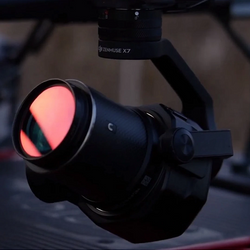Key Considerations
1. Drone Business Plan
Writing a business plan is an important early step in starting a drone business, defining who are, what you want to achieve, and how you plan to reach your goals.
Key considerations include what your business will do, how you plan to use drones, pricing and start-up capital, short and long-term objectives, and drone business name.
It is also useful to profile your customers and competition, and think about how you will market your business, including building your website, SEO, and keywords.
Click here to download a sample business plan from The Princes Trust.
2. Don't Reinvent the Wheel
You don't need to reinvent the wheel. Learn from others, and build out from there.
You're actually entering the industry at a great time, where the proof of concept for the technology has been demonstrated and the best use-cases have been made.
And remember, you haven't got to go at it alone. heliguy™ offers free consultancy as standard, and our experienced team - which supports major drone programmes around the world - can share case studies, best practises and workflows with you, and advise on the best technology to meet your needs and help get your business off the ground.
3. Start Small
You are starting your drone business - dreaming big and with huge aspirations. That is fine - but remember, it is best to start small, and work up from there.
In our experience, it is best to focus on potentially one use case, or idea, master this, and then grow.
This is also true with the equipment. Consider starting with smaller drone platforms, learn how they work and master them, and then scale up. After all, the Mini 2 is a tiny drone, but has some incredible specs, especially for jobs such as roof inspection or real estate photography.
It is like building blocks. Start small and then build one on top of the other.
4. Test, Train, And Learn
Practice makes perfect. It sounds cliche, but when it comes to developing a drone business, this saying really is true.
Test, train and learn about your equipment - both hardware and software - to become effective and efficient in your chosen field.
Depending on your drone, you may require a A2 or GVC drone certification. Use our drone training calculator to determine which training you need for your drone.
The more competent you are, the easier it will be to scale your business going forward.
5. Understand Rules and Regulations
It sounds an obvious one, but it is highly important. Make sure you are well-versed in local rules and regulations and understand your limitations.
Drone registration is different to drone training.
While you might not require drone training, most drone operators who are operating commercially will need to register with the UK CAA.
There are two aspects to drone registration: A Flyer ID (free, complete online test) and an Operator ID (£9) - and you might need both.
6. Drone Insurance
Drone insurance is vital if you are operating your drone commercially or running a drone business to protect your operations and your equipment.
The cost of drone insurance in the UK varies depending on the type of cover you require, your drone, and the length of the contract. Options do exist to pay as you fly.
We've partnered with Coverdrone to provide you with the best rates possible. Click here to get a quote.
7. Prepare to Scale Up
If things go well, it will be time to scale up, expand your operations, and grow your fleet.
It is a good idea to have a plan in place sooner rather than later, so you can hit the ground running when it comes to increasing your equipment and/or your team.
8. Drone Software
In most cases, you’ll need a decent computer to process imagery or other drone data.
But for some jobs, you’ll need niche computer programmes to maximise your data collection, such as drone mapping software .
As your business develops, drone fleet management and mission planning software can be beneficial.





























